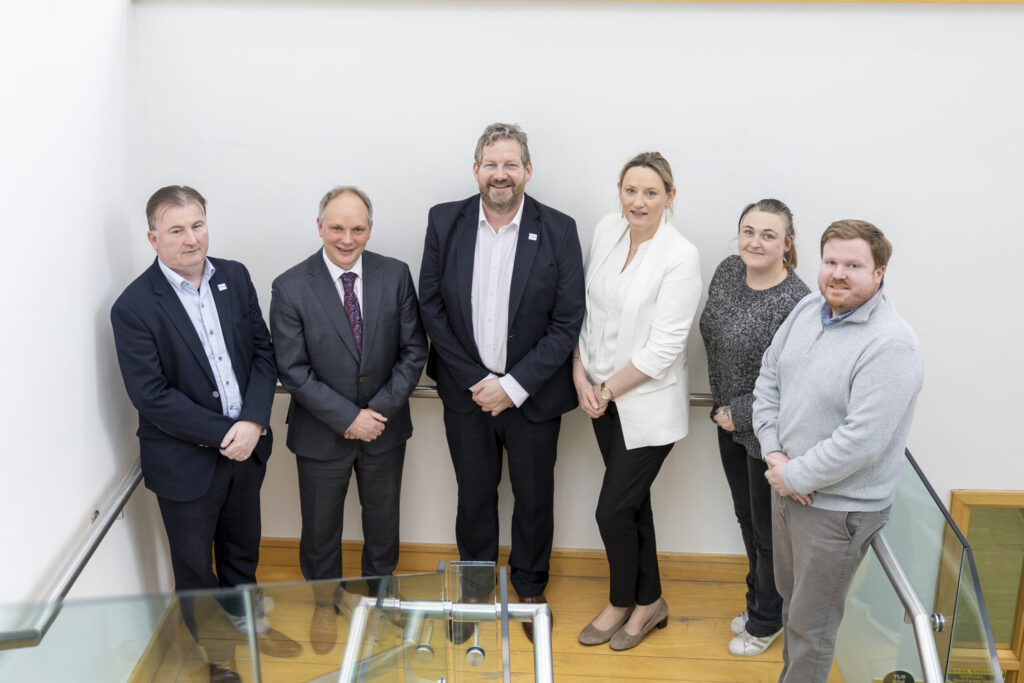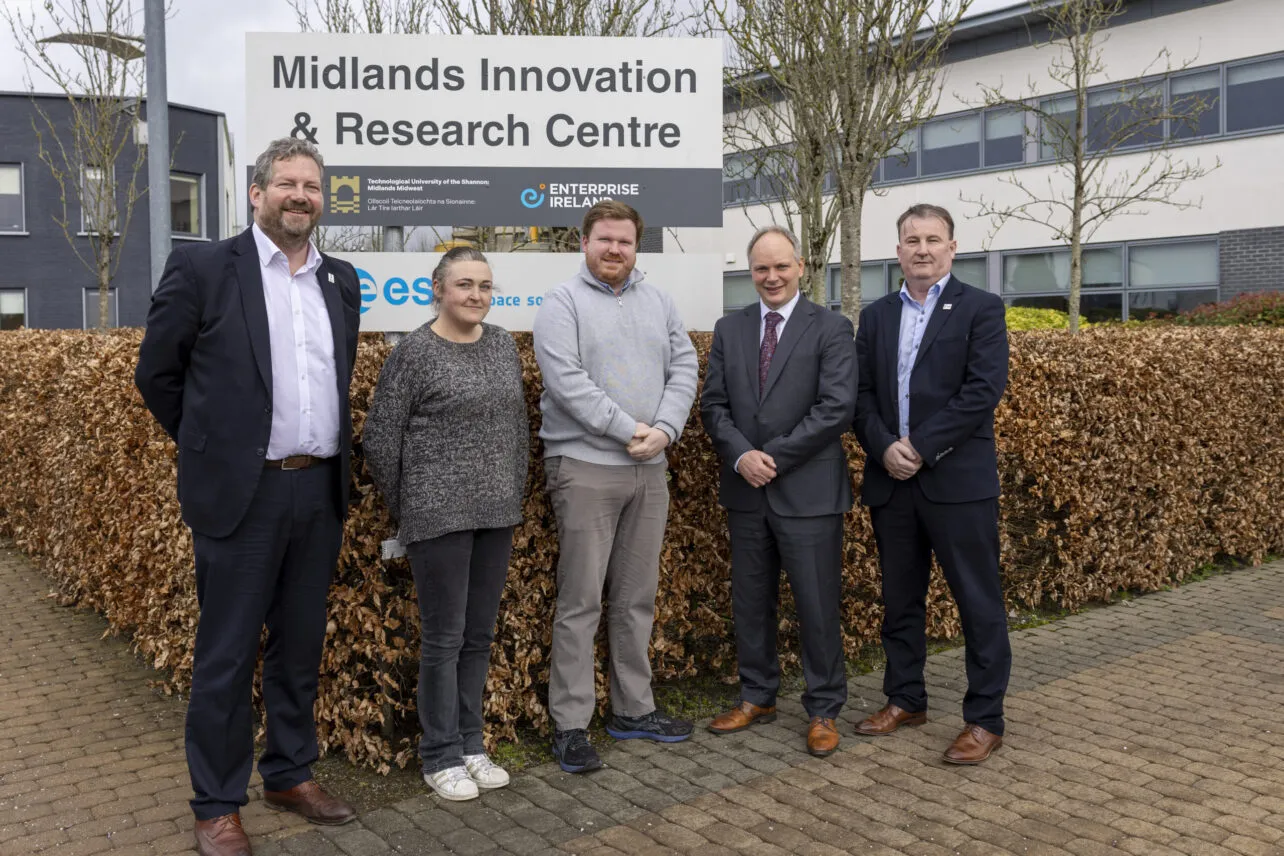Technological University of the Shannon (TUS) has been awarded €1.25 million in funding by the Department of Agriculture, Food and the Marine towards the development of two bioeconomy demonstration sites in Counties Tipperary and Offaly. TUS is leading two of the 19 short-term research projects and will receive almost 30% of the €4.2 million funding allocation specifically aimed at emerging policy and strategic needs of the Agri-food, Forest and Bioeconomy sectors.
Minister of State at the Department of Agriculture, Food and the Marine with special responsibility for research and innovation, Martin Heydon, made the announcement on February 23.
The first Policy and Strategic Studies Research Call (PSSRC) was launched by the department in 2022 as a funding instrument to support evidence-based research which is an integral element in the formation of public policy.
Speaking on the announcement of the awards, Minister Heydon said, “It is vital that public policy in the agri-food sector is informed by scientific evidence and knowledge. The work that will be carried out in these projects will contribute directly to the delivery of strategic research and policy actions across a range of priority areas included in the Programme for Government, Food Vision 2030, the Climate Action Plan and elsewhere.”
The 19 successful projects, involving a total of 12 research performing organisations, cover a wide range of topics including climate adaptation, plant health regulation and pesticides, forestry, animal health and welfare, the bioeconomy, and women in farming.
Of particular note are projects assessing the greenhouse gas emission efficiencies of Irish beef and dairy systems; examining sustainable and equitable pathways for rural women in farming; the development of bioeconomy demonstration sites in the Midlands; exploring the impact of deer on biodiversity; and assessing the impact of the sustainable use of pesticides regulatory framework.

Dr Liam Brown, Vice President Research, Development & Innovation at TUS welcomed the DAFM funding and explained “that the TUS projects are focused on the development of bioeconomy demonstration sites – one at the Irish Bioeconomy Foundation campus at the former Lisheen Mine site in Moyne, Co. Tipperary, led by Dr Paudie Murray and the LIFE Research Institute team (€1M) and the other at Mount Lucas, Co. Offaly, led by Prof. Neil Rowan and the Bioscience Research Institute team (€250K). Collectively, these two projects make up almost 30% of the overall funding announced. This is testament to our applied research expertise and our collaborative approach with TUS’s academic partners and industry stakeholders. We are looking forward to undertaking these exciting projects that will help to make a meaningful difference to the national green agenda.”
Dr Patrick Murray, Head of Research and Technology Transfer at TUS, said: “We are delighted to have received funding from the Policy and Strategic Studies Research Call (PSSRC) launched by the department in 2022. The circular bioeconomy is the intersection of bioeconomy and resource reutilisation towards net zero-carbon processes in Ireland. We have abundant bioresources that present immense opportunities for the development of a vibrant circular bioeconomy on the island. Scale-up and demonstration activities are seen by the European Commission as critical to the advancement of biobased products in society. The CircleBio-P project brings together relevant stakeholders to a scaled demonstration facility access point, providing state of the art high-quality biotransformation services aiming to unlock the innovation potential and uncover opportunities to build relationships and partnerships across the circular bioeconomy.”
Professor Neil Rowan, Director of the Bioscience Research Institute in TUS added, “We are delighted to have received funding under DAFM for policy-focused research to explore and develop a new bioeconomy demonstration blueprint for the Irish midlands with stakeholders. This will inform established and emerging top-down government strategic policies using a bottom-up end-user perspective approach. It will define an effective interface to accelerate these opportunities for businesses, communities and society. It will establish and connect a ‘circular’ ecosystem regionally including change of land use such as the peatlands. It will also underpin and support our next generation of change-makers to unlock the potential of the bioeconomy empowered through education.”
For further information about RDI at TUS, visit www.tus.ie/research-innovation.


